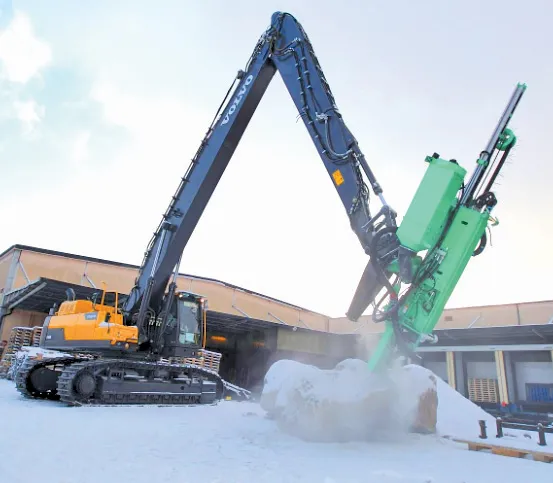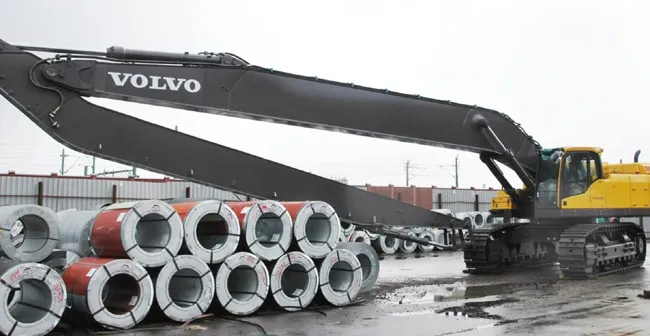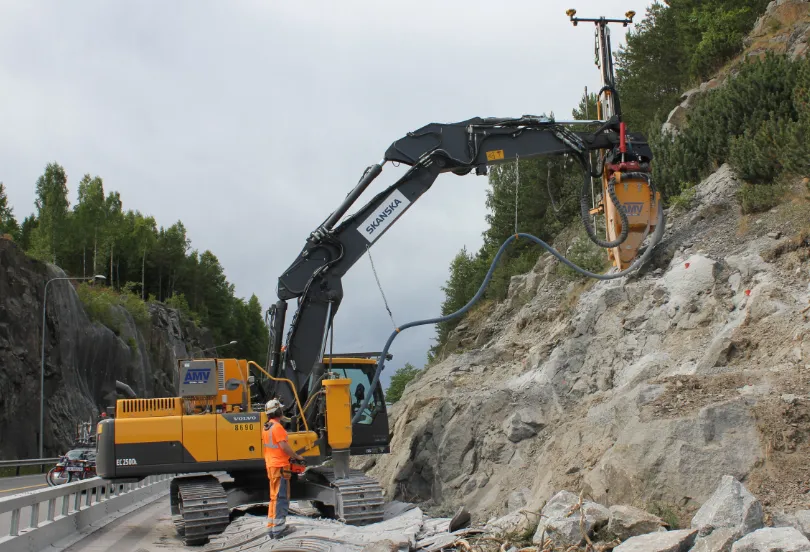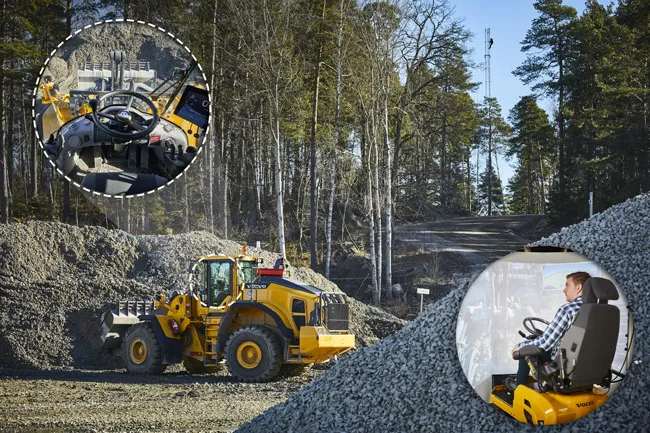Volvo Construction Equipment (Volvo CE) is increasing its custom machine offering for specialised applications by partnering and outsourcing modifi¬cations to an experienced Special Application Solutions Partner, such as Sweden’s CeDe Group. The Swedish construction equipment manufacturing giant says this is also allowing them to provide innovative solutions to sectors where Volvo equipment has not traditionally been present. Examples of Volvo CE’s facilitated Special Application Solutions include road-rail
May 24, 2013
Read time: 2 mins

Volvo Construction Equipment (359 Volvo CE) is increasing its custom machine offering for specialised applications by partnering and outsourcing modifications to an experienced Special Application Solutions Partner, such as Sweden’s 2694 CeDe Group.
The Swedish construction equipment manufacturing giant says this is also allowing them to provide innovative solutions to sectors where Volvo equipment has not traditionally been present. Examples of Volvo CE’s facilitated Special Application Solutions include road-rail machines, drilling and piling rigs, forestry carriers, material handling machines and amphibious machines.
“Of course, customising machines through third parties is something dealers have always done,” explains Esbjörn Fritzell, global director of business development at Volvo CE. “What’s new is that we are offering a structured and supported approach, enabling dealers to meet customer’s individual requests in an authorised way.”
Under Volvo CE’s Special Application Solutions Partnerships, machines are said to be adapted according to Volvo CE’s strict technical guidelines and provided with comprehensive manuals and warranties covering the entire equipment. This manufacturer endorsed process is also said to dramatically reduce delivery lead times.
“In the event of any damage to modified vehicles, the customer is protected because modifications have been made in accordance with all the necessary Volvo guidelines, given that authorised partners are utilised,” says Esbjörn.
Volvo CE’s global partners now include236 Hyundai TMC in Korea (specialising in forestry and demolition equipment); JUN CS (material handling) also in Korea; TSA in Indonesia (forestry); EIK in Malaysia; Young Corp. (material handling) USA; BECO (trailers) in the Netherlands; and Fliegl (push-off trays) in Germany.
The Swedish construction equipment manufacturing giant says this is also allowing them to provide innovative solutions to sectors where Volvo equipment has not traditionally been present. Examples of Volvo CE’s facilitated Special Application Solutions include road-rail machines, drilling and piling rigs, forestry carriers, material handling machines and amphibious machines.
“Of course, customising machines through third parties is something dealers have always done,” explains Esbjörn Fritzell, global director of business development at Volvo CE. “What’s new is that we are offering a structured and supported approach, enabling dealers to meet customer’s individual requests in an authorised way.”
Under Volvo CE’s Special Application Solutions Partnerships, machines are said to be adapted according to Volvo CE’s strict technical guidelines and provided with comprehensive manuals and warranties covering the entire equipment. This manufacturer endorsed process is also said to dramatically reduce delivery lead times.
“In the event of any damage to modified vehicles, the customer is protected because modifications have been made in accordance with all the necessary Volvo guidelines, given that authorised partners are utilised,” says Esbjörn.
Volvo CE’s global partners now include








